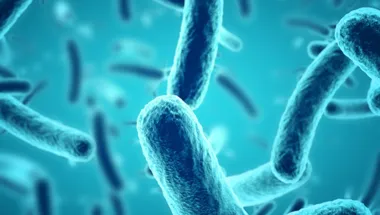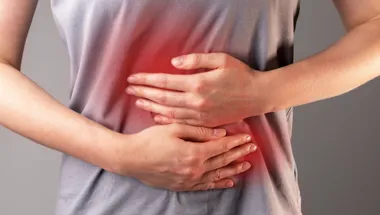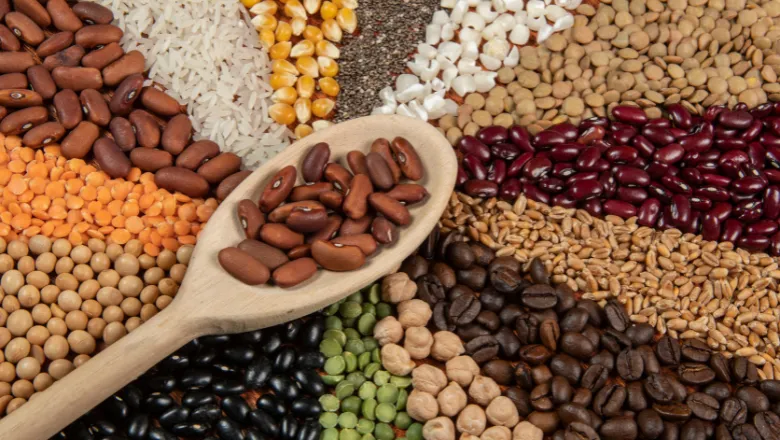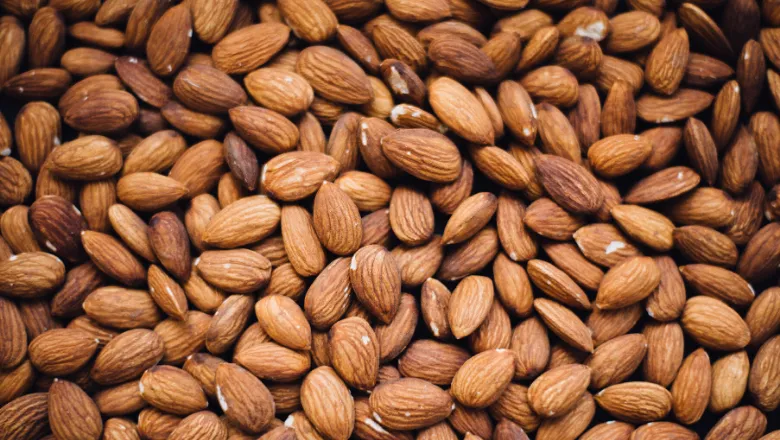
Professor Kevin Whelan
Professor of Dietetics
Research interests
- Nutrition
Biography
Kevin Whelan is the Professor of Dietetics in the Department of Nutritional Sciences at King’s College London. Following a BSc in Biochemistry, Kevin completed an MSc in Nutrition and Dietetics (awarded with Distinction) and worked as a clinical dietitian specialising in the management of patients with gastrointestinal disease requiring nutritional support. This was followed by completion of a PhD at King’s College London investigating prebiotics and the gut microbiome.
Professor Whelan has undertaken extensive research on probiotics, prebiotics, fibre and dietary interventions in gastrointestinal health and disease, funded through national agencies such as the Medical Research Council, Biotechnology and Biological Sciences Research Council and National Institute of Health Research and charities such as Crohn’s and Colitis UK, the Kenneth Rainin Foundation and the Helmsley Charitable Trust. He has published over 230 full papers in peer-reviewed journals and is the Series Editor of the Advanced Nutrition and Dietetics book series from the British Dietetic Association.
He has a particular interest in education and completed his MA in Academic Practice Teaching and Learning at King’s (awarded with distinction). He has twice received the College Teaching Excellence Award, as well as a College Teaching Fellowship and PhD Supervisory Excellence Award. He has previously served as academic advisor to the National Genetics Education and Development Centre and was previously a member of the Health Education England Advisory Group.
Professor Whelan is a member of the Scientific Advisory Committee on Nutrition that provides independent risk assessment for UK Government Departments. He is a Founding Trustee of the Academy of Nutrition Sciences and on the editorial boards of the Journal of Human Nutrition and Dietetics and Gut Microbiome.
In 2012 he was awarded the Nutrition Society Sir David Cuthbertson Medal in recognition of research that has advanced clinical nutrition and impacted on patient care. In 2017 he was appointed a Fellow of the British Dietetic Association and in 2018 delivered the Dr Elsie Widdowson Memorial Lecture.
Research

Diet & Gastrointestinal Health Research Group
The Diet and Gastrointestinal Health Research Group aims to understand the molecular, cellular, whole person and population-level mechanisms involved in gut health and the development and treatment of gastrointestinal disease.

FruGut study
The FruGut Study: Physiological, Microbiological and Metabolomic Effects of Fruit Products.
Project status: Ongoing

The NutrImmune Study
Investigating how diet can optimise our immune response to flu vaccines. We're recruiting healthy adults, aged 40-64 years old, who consume 2+ snacks per day.
Project status: Ongoing

Gut health and diet
Maintaing gut health, and preventing gastrointestinal disease are important features of health and well being

Carbohydrates and biopolymers
Biopolymers refers to natural polymers that are produces produced by cells of living organisms. Of particular interest to our group and nutritional sciences in general are carbohydrate polymers from plant sources such as starch, cell wall matrices (including non-starch polysaccharides or ‘dietary fibre’) and polyphenolics.

Mental health and diet
This research group aims to explroes the (1) mechanisms of food compounds, nutrients, foods, and whole diets on mental health and illness, and (2) the clinical efficacy and effectiveness of such nutritional interventions.

Guideline development for foods and diets
While a lot of research evidence exists on the link and effect of nutrition in health and disease, however translation of these is often limited. We, therefore, aim to translate a vast amount of evidence into dietary and food-related guidelines using standardised methodology, such as GRADE and Delphi approaches.

Gut disorders (IBS, IBD) and diet
Irritable bowel syndrome (IBS) and inflammatory bowel disease (IBD) are common gastrointestinal disorders that have a significant impact on patients' quality of life, and are associated with comorbidieties.

Education research in nutrition & dietetics
The Department of Nutritional Sciences aims to provide world class education to students enrolled on our programmes in Nutrition & Dietetics and to continually strive for excellence by undertaking education research.

Protein, body composition and physical function
Protein, body composition and physical function
News
Christmas without the guilt – 12 health-boosting festive foods
Christmas is known as a time of indulgence and overeating, but some festive foods might actually be beneficial to our health.

Kiwis could help manage chronic constipation
Chronic constipation could be helped by kiwis, rye bread and high mineral-content water

New research presented at ECCO Congress on low emulsifier diet and Crohn's disease
New research has been presented at the ECCO Congress on a low emulsifier diet and Crohn's disease.

Researchers receive £1.5m grant to investigate impact of plant food diversity on health
Researchers from King’s College London have been awarded a £1.5m research grant from the Biotechnology and Biological Sciences Research Council (BBSRC) for a...

Dietary factors should be considered in probiotic and prebiotic trials, say researchers
An international group of experts have highlighted the critical role of diet in shaping the efficacy of prebiotics and probiotics.

Snacking on almonds boosts gut health
Eating a handful of almonds a day significantly increases the production of butyrate, a short-chain fatty acid that promotes gut health.

Professor Kevin Whelan appointed to government nutrition advisory committee
Professor Kevin Whelan from the School of Life Course & Population Sciences has been appointed to the Scientific Advisory Committee on Nutrition (SACN).

Department of Nutritional Sciences excels at British Dietetic Association annual awards
Nutritional Sciences academics take home awards for digital innovation, best research publication and best published educational work.

Features
Spotlight on nutrition: Research into the impacts of our diets
From beans, to berries to new types of bread, our researchers have been doing a range of work to help us better understand how you are what you eat.

Six ingredients to make a nutritious Christmas meal
We've pulled together the perfect recipe for a hearty and healthy Christmas meal to get you through the holiday season

Research

Diet & Gastrointestinal Health Research Group
The Diet and Gastrointestinal Health Research Group aims to understand the molecular, cellular, whole person and population-level mechanisms involved in gut health and the development and treatment of gastrointestinal disease.

FruGut study
The FruGut Study: Physiological, Microbiological and Metabolomic Effects of Fruit Products.
Project status: Ongoing

The NutrImmune Study
Investigating how diet can optimise our immune response to flu vaccines. We're recruiting healthy adults, aged 40-64 years old, who consume 2+ snacks per day.
Project status: Ongoing

Gut health and diet
Maintaing gut health, and preventing gastrointestinal disease are important features of health and well being

Carbohydrates and biopolymers
Biopolymers refers to natural polymers that are produces produced by cells of living organisms. Of particular interest to our group and nutritional sciences in general are carbohydrate polymers from plant sources such as starch, cell wall matrices (including non-starch polysaccharides or ‘dietary fibre’) and polyphenolics.

Mental health and diet
This research group aims to explroes the (1) mechanisms of food compounds, nutrients, foods, and whole diets on mental health and illness, and (2) the clinical efficacy and effectiveness of such nutritional interventions.

Guideline development for foods and diets
While a lot of research evidence exists on the link and effect of nutrition in health and disease, however translation of these is often limited. We, therefore, aim to translate a vast amount of evidence into dietary and food-related guidelines using standardised methodology, such as GRADE and Delphi approaches.

Gut disorders (IBS, IBD) and diet
Irritable bowel syndrome (IBS) and inflammatory bowel disease (IBD) are common gastrointestinal disorders that have a significant impact on patients' quality of life, and are associated with comorbidieties.

Education research in nutrition & dietetics
The Department of Nutritional Sciences aims to provide world class education to students enrolled on our programmes in Nutrition & Dietetics and to continually strive for excellence by undertaking education research.

Protein, body composition and physical function
Protein, body composition and physical function
News
Christmas without the guilt – 12 health-boosting festive foods
Christmas is known as a time of indulgence and overeating, but some festive foods might actually be beneficial to our health.

Kiwis could help manage chronic constipation
Chronic constipation could be helped by kiwis, rye bread and high mineral-content water

New research presented at ECCO Congress on low emulsifier diet and Crohn's disease
New research has been presented at the ECCO Congress on a low emulsifier diet and Crohn's disease.

Researchers receive £1.5m grant to investigate impact of plant food diversity on health
Researchers from King’s College London have been awarded a £1.5m research grant from the Biotechnology and Biological Sciences Research Council (BBSRC) for a...

Dietary factors should be considered in probiotic and prebiotic trials, say researchers
An international group of experts have highlighted the critical role of diet in shaping the efficacy of prebiotics and probiotics.

Snacking on almonds boosts gut health
Eating a handful of almonds a day significantly increases the production of butyrate, a short-chain fatty acid that promotes gut health.

Professor Kevin Whelan appointed to government nutrition advisory committee
Professor Kevin Whelan from the School of Life Course & Population Sciences has been appointed to the Scientific Advisory Committee on Nutrition (SACN).

Department of Nutritional Sciences excels at British Dietetic Association annual awards
Nutritional Sciences academics take home awards for digital innovation, best research publication and best published educational work.

Features
Spotlight on nutrition: Research into the impacts of our diets
From beans, to berries to new types of bread, our researchers have been doing a range of work to help us better understand how you are what you eat.

Six ingredients to make a nutritious Christmas meal
We've pulled together the perfect recipe for a hearty and healthy Christmas meal to get you through the holiday season

